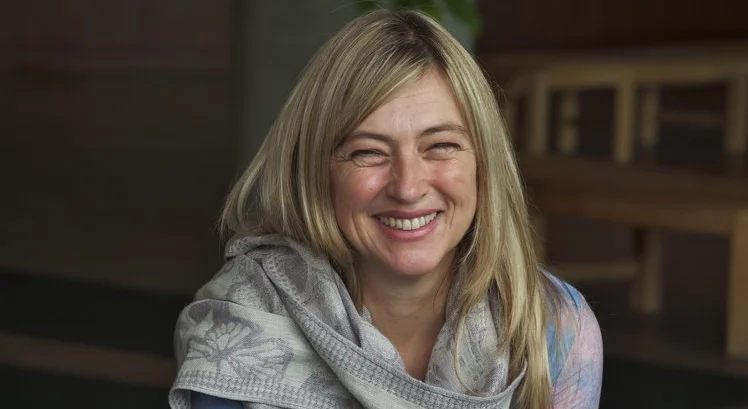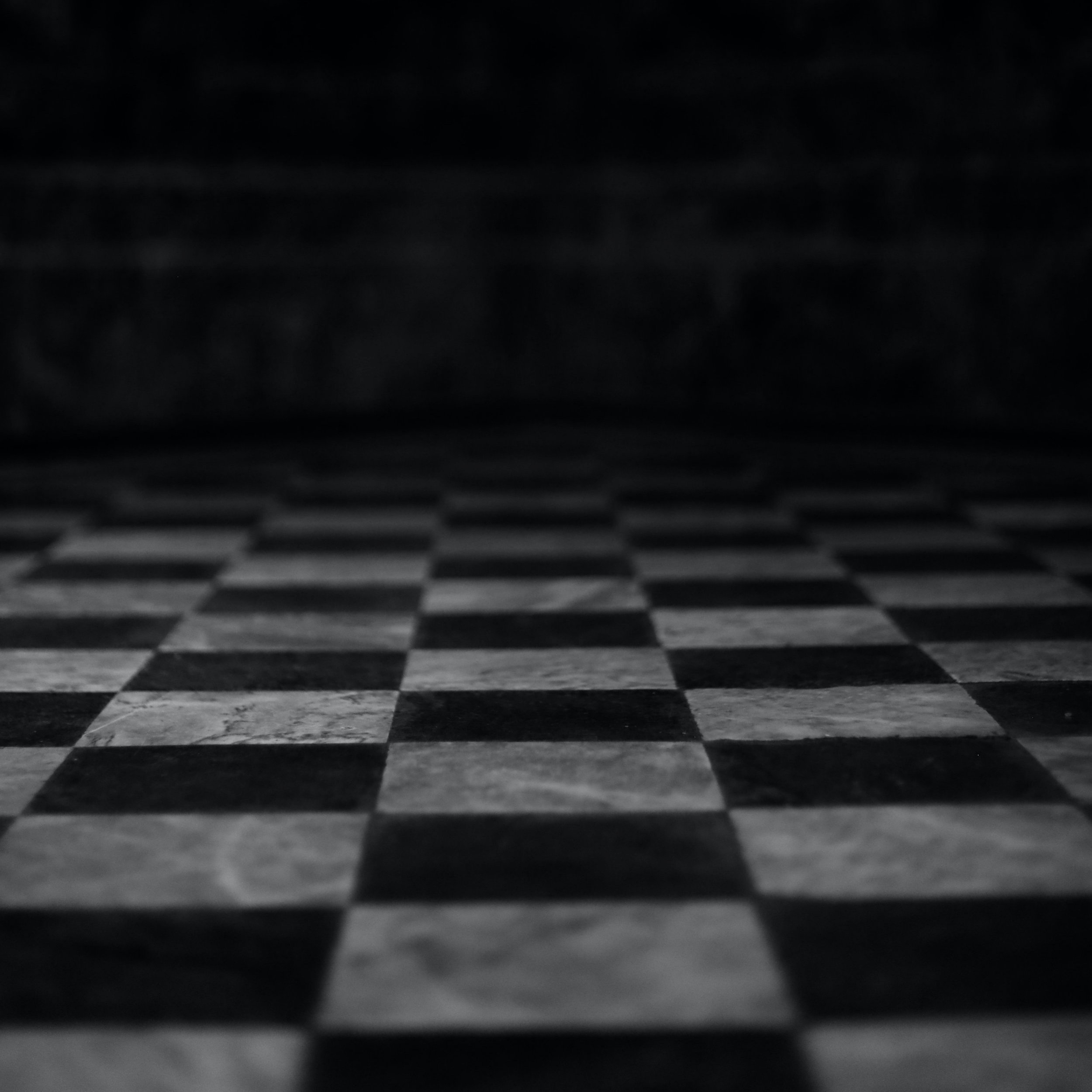In the young history of BEYOND STORYTELLING, Chené Swart continues to be a source of inspiration for me. Connecting to her and getting to know her work has been one of the great gifts that I received in this time. In this conversation, we got together to explore the background to her re-authoring practice, her book and our thoughts around re-authoring futures.
Chené is one of our key noters and will host a workshop on a project where Re-Authoring practices have been applied to the future of tourism and travel.
Enjoy the read:
Jacques Chlopczyk: Chené, how did you get to Re-Authoring? Why did the word capture you?
Chené Swart: For me the word, Re-Authoring, of all the language in the narrative field still surprises people, make them think and strikes a chord with people’s imagination. Sometimes words have lost their meaning or words have been captured.
Re-Authoring was one of the words, that – in the big narrative landscape – still had some Oooomph in it. Just as a word alone. It felt untainted. And it felt that there is still some possibility to inhabit it with one´s own meaning.
JC: So what does Re-Authoring mean to you?
CS: Firstly, re-authoring means for me that something is amiss. It makes clear that the world is not what it can be in terms of the future. We all live in a context that has something in mind for us, that shapes how we are in the world. Re-Authoring means that the context needs to be named and that we need to understand the influence of the context. And that our writing in this world sometimes happens as a protest towards this context. Sometimes it needs to transform systems, it needs to ask questions about why certain words are used.
Secondly, re-authoring means that there is an agency and authorship that can happen. It assumes that humans and communities are able to impact the stories that are told by and about them – the stories that shape their way of being.
Thirdly, re-authoring lens and practices has the potential to enable us to see the world in a new way, and therefore also our place in the world. We could start actively participating in the world by writing in the world. But it is not a writing that is an individual affair. Re-Authoring is always in community. It presupposes that there is a whole community who is willing to write this world with you and is willing to come alongside you in supporting you in this writing.
JC: What came to my mind when you spoke is that the world is also never finished. Re-Authoring also alludes to continuous transformation. There is no end state, and the world is never at an end. That life is never at an end.
CS: And that in a certain time and space we also dip into this world to re-author. We are not re-authoring everything always. If we have the passion for something, something that matters to us and that is the place we do it in community. My dream is that if everyone does their part, collectively we will have something on the move for a different future. But a future that is always on the move again. It is not static. You said something about taking back the pen…
JC: With the circle I have the image of the spiral. That is an image – we are always somehow moving in circles. When we have one challenge, gift, burden done, there is the next one. To use psychological language, if we managed one developmental task that is handed down to us by our communities or organisations there will be another one. It is about this continuous life circle.
What I also found interesting: the tension between re-authoring and future. The power of the title of the conference is the tension field. Because it assumes that the future is already written. So, if you re-author something that means there is something already.
Even when you talk to a person or work in organization and they say to you: I don´t have an idea about the future – they always do. Re-Authoring entails mining or bringing to light the unspoken – hopes & dreams – about the future. I like the title also because of this tension field. That you already assume that everything and everyone has an image of the future, even if they cannot explain it.
This also concerns the relationship between past, present and future. When we say re-author the future we need to do it in the here and now. And you can only do it, if you understand on which shoulders you are standing and what has been handed down to you. You need to understand how did you get where you are. What is the trauma or burden I carry but also – what are the gifts that I am carrying.
Re-Authoring is also about the resources and gifts that are in my past and that I can take into or leverage from into the future. Re-Authoring is very resource oriented: It acknowledges that we all have weaknesses but invites us not to spend time with focusing on that too much.
CS: It is about the moments that take us forward. The moments that we want more of. In a recent workshop somebody stood up and said when he thought of the moment, the memory of the moment was even stronger than the moment itself. Re-Authoring taps into the richness of the moment and beyond. As if the moment transcends time. And the moment now is even stronger than the memory of the moment. That was really powerful for me.
In re-authoring futures, moments are the ground for these futures. These moments also expose our intense humanity. In that moment when the past shines bright and even a little spark of the future ignites it is as if we see humanity in its intense beauty.
JC: It also ties back to the idea of wholing and healing in working with stories. There always are critical voices and we invite them in and say that this is also part of the system and context we move in. Thus, Re-Authoring is breaking taboos and is also inviting the difficult voices to be heard. Because it cannot happen without doing it, because the voices will keep being stronger or they will keep nagging if they are not invited.
Interesting point in our discussion. When we talk about moments, we have the moment in which we ask a group or a person about the moments: a moment that you would like more of, or that took you forward … We have an overlay of the present moment of which you ask the question and the space you are doing it and the moment you are doing it in and at the same time the moments transform when you invite the past to crawl up on you. This makes the moment special: when we become so aware of the past. And the past speaks louder now than it did in the moment we experienced it, because it happens in a certain context. This makes the moment of transformation.
How do you create these moments that matter? How do you create a moment in which a memory of a past moment that you want more of becomes even stronger and transforms and shifts something?
CS: In conversations with Tom Carlson we spoke about presence (according to Gumbrecht). When you are in presence, you can call out of the shadows of time all the moments and you really unshackle moments out of the shadows of time. And I think even to the point that they can then be brought forward into the future because they are no longer bound to time. They are here, now we can imagine what it means for the future. We can see the future in a certain sense. Leonhard Cohen has a line in a song in which he sings that there is a crack in everything where the light can shine through. For me those presence moments are the moments in which the pen is all of a sudden back in our hands.
JC: What contributes to these moments from your practice and your experience?
CS: All the presence elements: nature, beauty, art, community. They are all portals of presence. Senses, all the senses. Sometimes oddly enough, when people are put into relationship with the context, that also becomes a portal into presence. When all of a sudden people discover “this is not my idea alone”. There is a whole world crafted in patriarchy – this becomes a portal of presence. Because all of these ideas are then unshackled from their factness and truthness. People say, no – those are ideas that are 2000 years old. I don´t agree and I don´t like it. This is the moment when the pen comes back into your hands, like the magic wand.
JC: Presence in this sense is about being in contact with oneself and the context. Both sides at the same moment. You are one and fluid at the same time. It is a thing between knowing who I am and also being able to step out of this role. I am suffering from this discourse, this is the point where I can say I change or I relate myself differently to the world.
CS: I think of a tent that loses the pens that grounds it. Where I unearth the tent – It is not scary or factual or important. It also becomes fluid. Re-Authoring is really about our relationship to all things. It is giving us back the pen in the relationship to all things.
JC: So, why does this concept capture you so much?
CS: What we are talking about right now. It is inviting the portals of presence into my practice and facilitating the movement between meaning and presence. We live in a meaning culture, where everything has to mean something. Where you are punished, when you are not learning from events that happen to you. Did you learn something from this disaster or health crises?
We are constantly bombarded with making meaning. Our whole research industry is based on meaning making – interpretation. For me Portals of Presence is what I am focusing now. I am seeing how that is redefining time, identity, community because people are connected in ways that they never thought was possible.
It has everything to do with the future that they can now imagine. In one of the groups I worked with somebody stood up at the end of the day and said: I feel that I am connected to a community now. So, the future of community has been created in the sharing of moments. And this is the first thing, right in the beginning, when I went to USA and had conversations with Peter Block.
He wanted to use narrative ideas in his flawless consulting III workshop and we piloted a narrative half day experience. In the final reflections people said where these ideas took them was that it opened up new possibilities. Passion, inspiration and new possibilities come to people through re-authoring ideas and practices. And that means that when those moments are re-membered it is as if we can remember our future. We put membership to the possibility of our future together.
JC: Remembering transforms past, present and future at the same time. It dissolves the time arrow that says time is a straight line. I just remembered Hundertwasser saying the straight line is a godless line. I think this is a departure from a meaning culture and an invitation for presence.
As far as I understand Gumbrecht, the meaning culture is the one that controls all, is detached. This is the spirit that guided the last 600 years and made time a straight line. And this invites unhealthy developments: you don’t think in loops but you think in arrows. As if your actions do not have consequences in the long run.
Image courtesy of Adrien Ledoux via Unsplash








